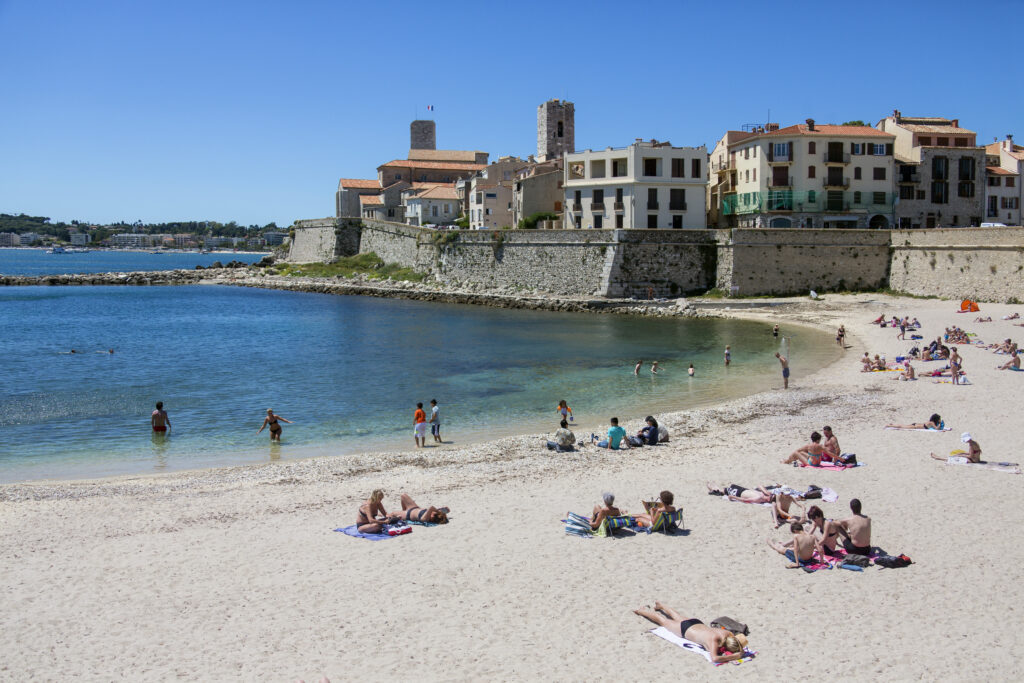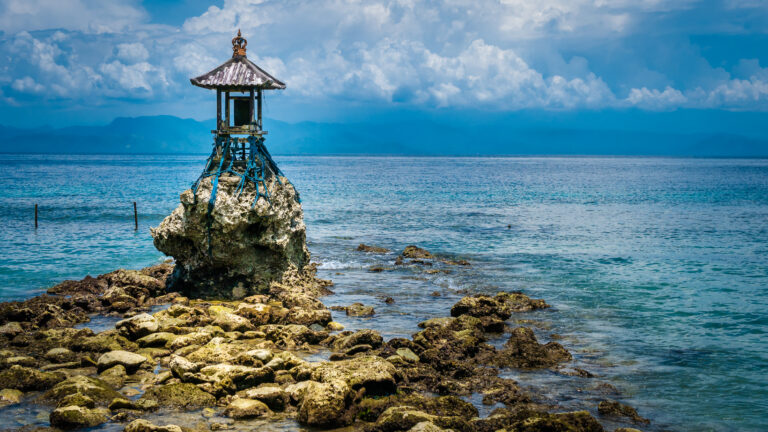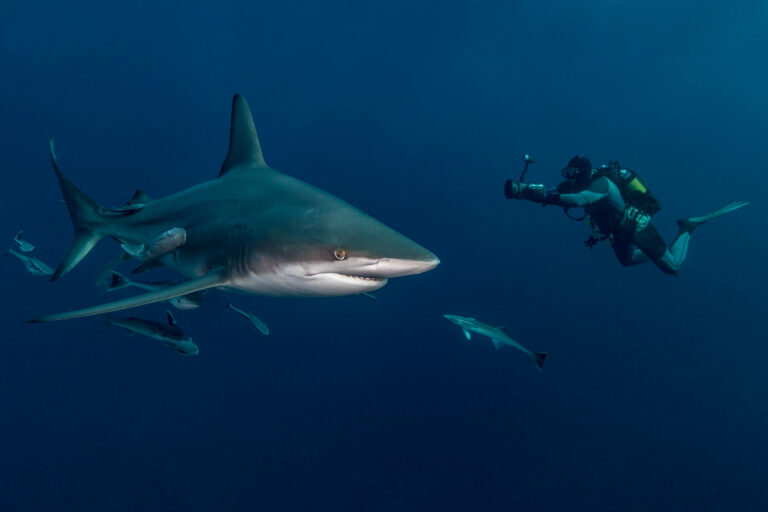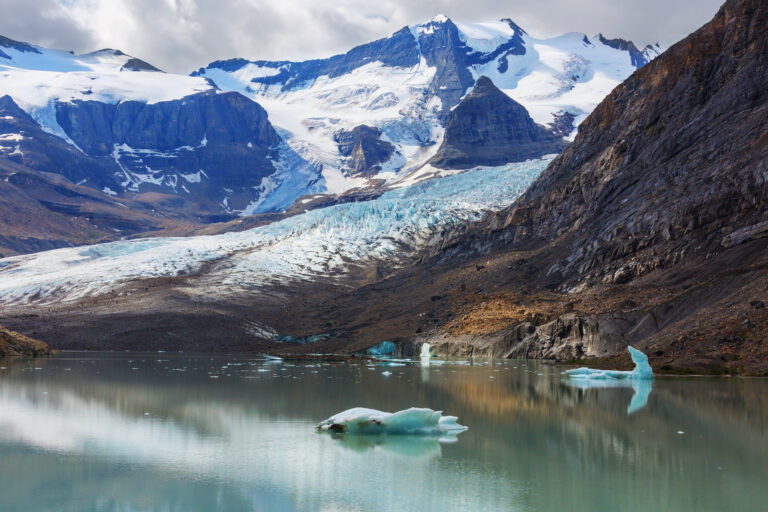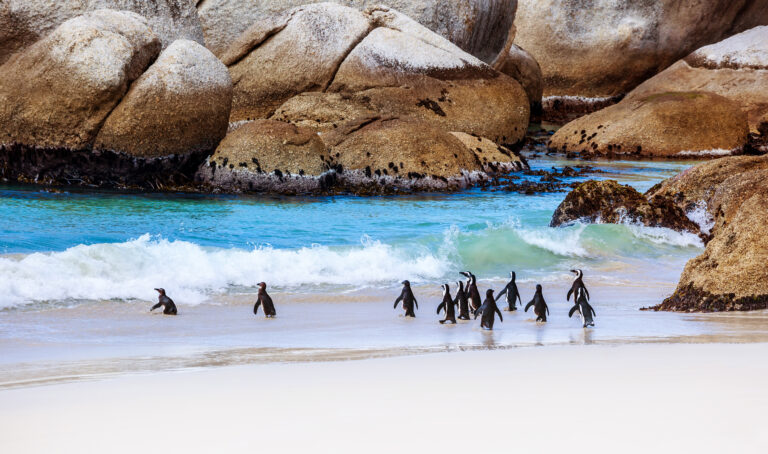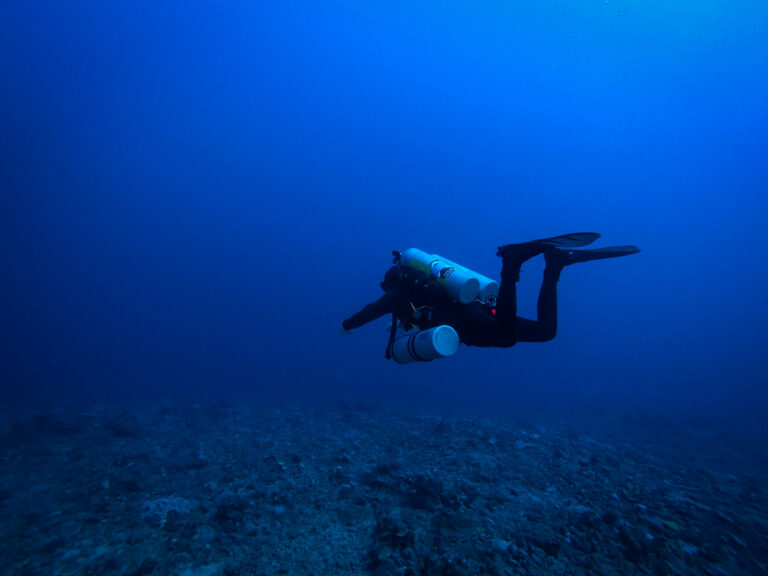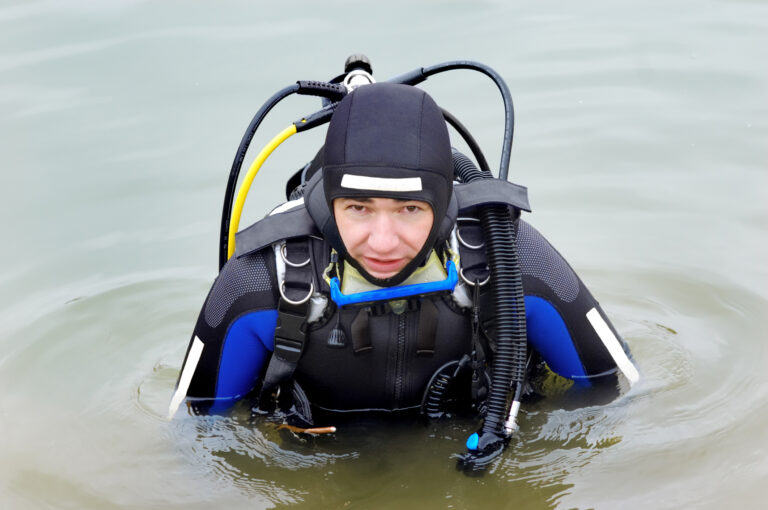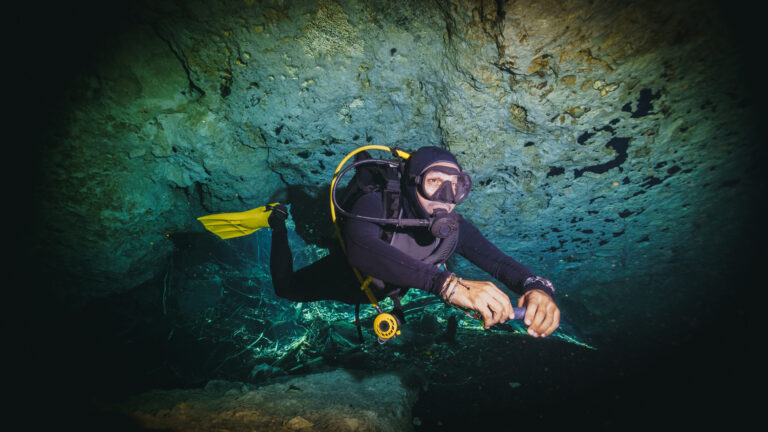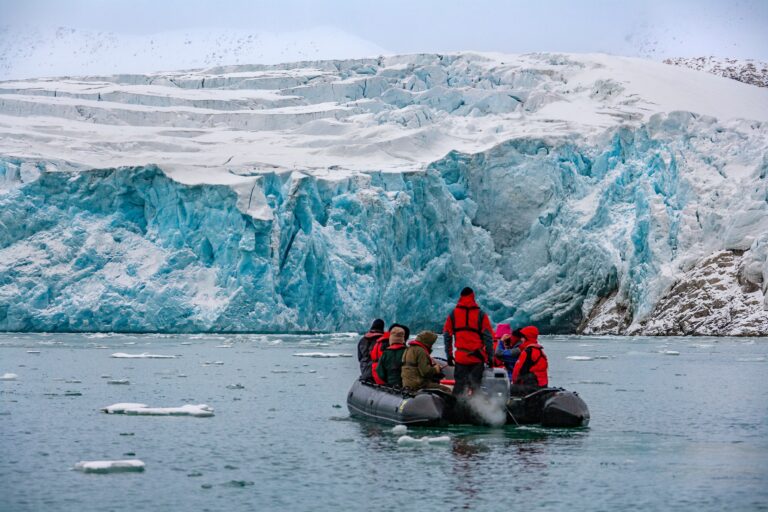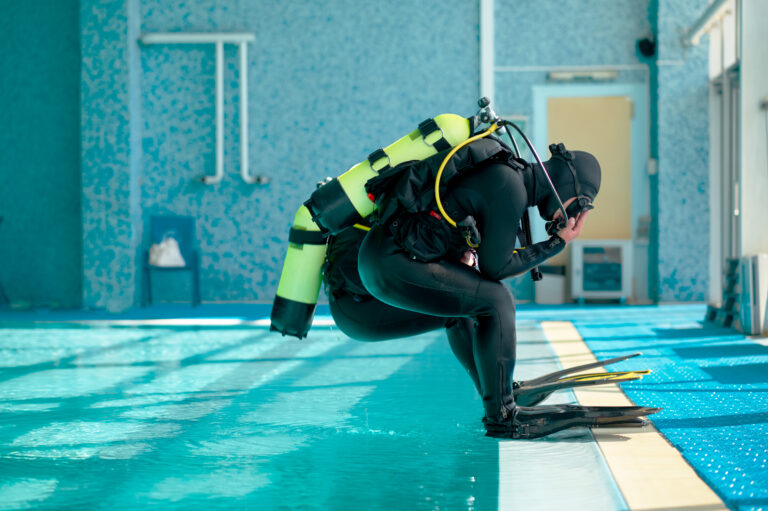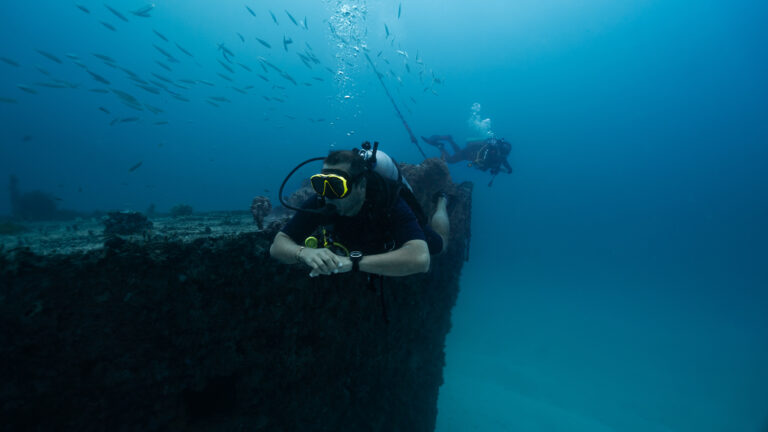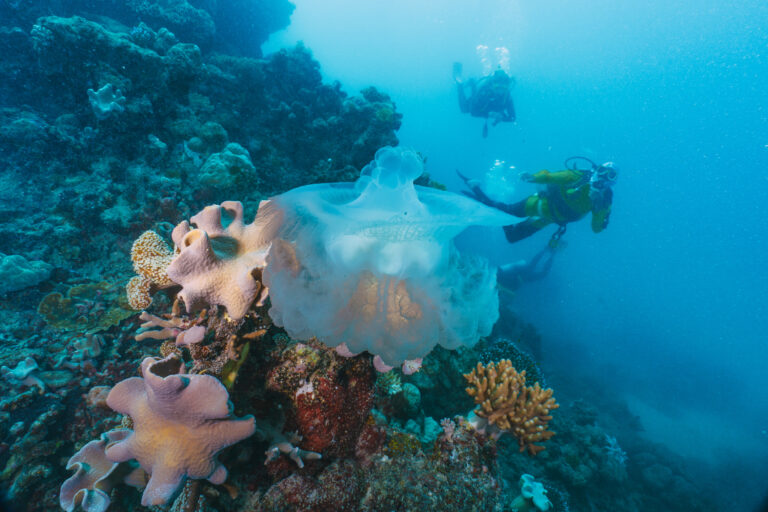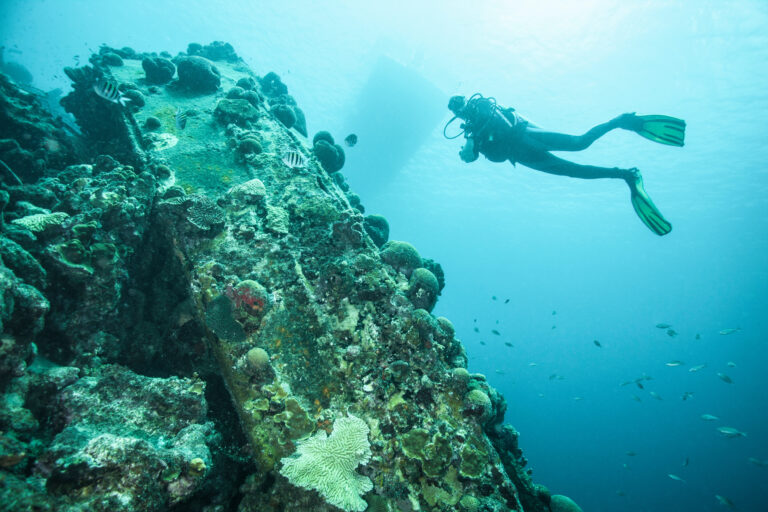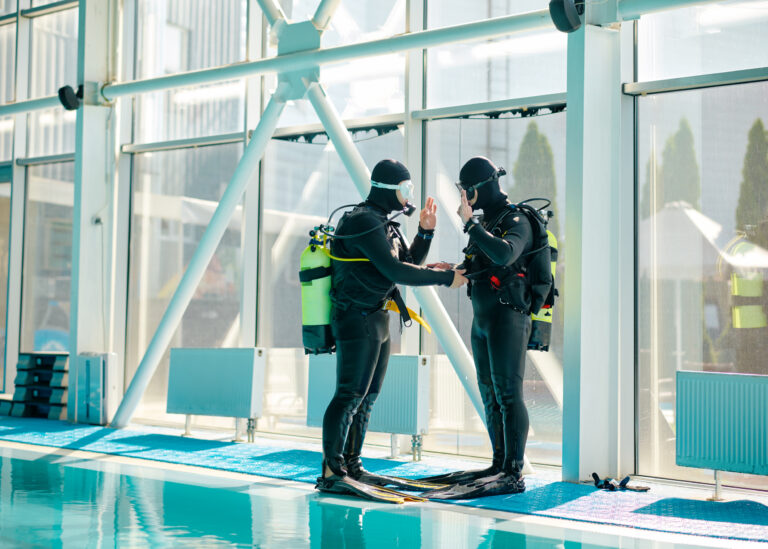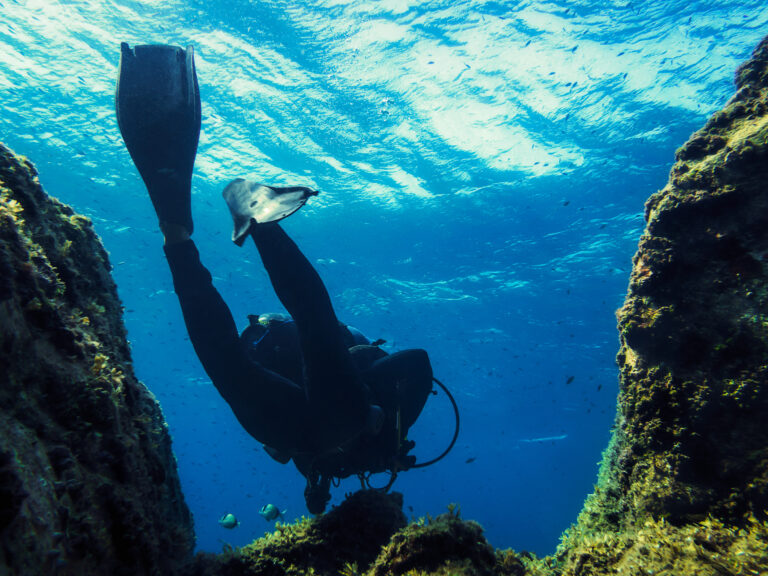SCUBA DIVERS’ TRAVEL GUIDE TO France
France is a scuba diving haven that offers a variety of underwater experiences for divers of all levels. Whether you want to explore the wrecks of Normandy, the caves of Lot et Garonne, or the corals of the Mediterranean, you will find something to suit your taste and skill in this beautiful country. France is also home to the father of modern scuba diving, Jacques Cousteau, who pioneered many innovations in diving technology and marine conservation. You can follow his footsteps and discover the amazing biodiversity and history that lies beneath the surface of the French waters. From the cold and clear lakes of the Alps to the warm and colorful islands of Corsica and Riou, France has a lot to offer to scuba divers who are looking for a transcendent underwater experience.
LOCATION AND GEOGRAPHY
France offers a diverse range of scuba diving experiences thanks to its extensive geographical variety, with coastlines along the Mediterranean Sea, the Atlantic Ocean, and the English Channel. In the south, the French Riviera (Côte d’Azur) boasts warm, clear waters and vibrant marine life, making it a Mediterranean diving gem with spots like the Lérins Islands and the iconic Port-Cros National Park. To the west, the rugged Atlantic coast presents challenging dives with strong currents and an abundance of shipwrecks, particularly around Brittany and Normandy. The island of Corsica, with its dramatic underwater topography, offers another level of diversity, featuring everything from towering pinnacles to ancient wrecks. Inland, France’s geography surprises with opportunities for freshwater diving in the crystalline springs and rivers of the Massif Central or the alpine lakes of the French Alps. Each region of France provides unique underwater landscapes shaped by its geographical location, ensuring that both novice and experienced divers can find a locale that suits their interests and skill levels.
VISA AND ENTRY REQUIREMENTS
Before embarking on a scuba diving adventure in France, it is essential to understand the visa and entry requirements for travelers. As France is a member of the European Union and a signatory of the Schengen Agreement, many visitors, including those from other EU countries, the United States, Canada, Australia, and Japan, do not require a visa for stays of up to 90 days within a 180-day period for tourism purposes. However, if you are not from a visa-exempt country or plan to stay longer, you will need to apply for a visa in advance. Ensure your passport is valid for at least three months beyond your planned departure date from the Schengen area. Upon arrival, keep your diving certification and insurance details handy, as authorities may request proof of your diving credentials and that you have adequate insurance coverage for scuba diving activities. Always check the latest visa requirements with the French consulate or embassy in your home country before your trip, as regulations can change.
GETTING TO France
Getting to France for a scuba diving adventure is a straightforward affair, thanks to the country’s well-connected transportation infrastructure. Major international airlines frequently service France’s primary airports, such as Charles de Gaulle in Paris, Nice Côte d’Azur in the French Riviera, and others scattered across the country, ensuring easy access from anywhere in the world. For European travelers, high-speed trains like the TGV and Eurostar offer rapid transit to coastal cities, while an extensive network of highways makes road trips a viable option. Once in France, domestic flights, trains, and car rentals can transport you to various diving hotspots, from the rugged, kelp-rich waters of Brittany to the warm, biodiverse Mediterranean Sea along the southern coast. Whether you’re arriving from afar or crossing the border from a neighboring European country, France’s accessibility promises a hassle-free start to your underwater excursion.
BEST TIME TO DIVE
The best time to scuba dive in France largely depends on the specific region you plan to explore, as the country offers a diverse range of underwater environments, from the temperate waters of the Atlantic to the warm, clear seas of the Mediterranean. For the iconic French Riviera and the southern coast, the ideal diving season stretches from May to November, with water temperatures peaking around 24°C (75°F) in August, offering excellent visibility and comfortable conditions. Meanwhile, the Atlantic coast is best dived in the summer months, from June to September, when the water is at its calmest and the marine life is most active. Inland, France also boasts numerous freshwater dive sites, including quarries and springs, which can be dived year-round, though a dry suit may be necessary during the colder months. Regardless of the location, it’s always wise to check local dive conditions and marine forecasts, as weather can significantly impact visibility and safety underwater.
ACCOMMODATION OPTIONS
France offers a diverse range of accommodation options for scuba divers, catering to various preferences and budgets. Along the French Riviera, divers can indulge in luxury at high-end resorts in Nice or Cannes, where the azure waters of the Mediterranean beckon. For those seeking a more intimate experience, boutique hotels and charming B&Bs in coastal towns like Antibes or Saint-Tropez provide personalized service and easy access to local dive shops. In Corsica, divers can immerse themselves in the island’s natural beauty by staying in seafront villas or rustic gîtes nestled in the hills, offering stunning views and proximity to renowned dive sites. Budget-conscious divers might opt for hostels or campgrounds, particularly in areas like the Southern coast, where facilities often include gear storage and rinse areas. Whether it’s the comfort of a full-service hotel or the adventure of a liveaboard exploring remote offshore sites, France’s accommodation options ensure that divers can rest and recharge with convenience and style after a day beneath the waves.
DIVE OPERATORS AND DIVE SHOPS
In the enchanting waters of France, a plethora of dive operators and shops await to cater to the diverse needs of underwater explorers, from the rugged coastlines of Brittany to the sun-drenched shores of the French Riviera, and the pristine waters surrounding Corsica. These establishments, often staffed by multilingual professionals, offer a range of services including PADI and CMAS certification courses, guided dive excursions to spectacular sites like the WWII wreck dives in Normandy, the marine life-rich Calanques National Park near Marseille, and the legendary Lavezzi Islands in Corsica. Dive shops in France are well-equipped with rental gear that meets European safety standards, ensuring a seamless experience for divers of all levels. Many operators also arrange night dives, underwater photography workshops, and even freediving adventures, providing a comprehensive gateway to the underwater marvels of France. Whether you’re a novice diver or a seasoned veteran, French dive operators and shops stand ready to enhance your underwater journey with their expertise, hospitality, and local knowledge.
TRANSPORTATION WITHIN France
In France, transportation options for scuba divers are as diverse as the underwater landscapes awaiting exploration. The country’s extensive and efficient rail network, operated by SNCF, offers convenient connections to coastal regions such as the French Riviera, Normandy, and Brittany, where many diving spots are located. For more remote dive sites, such as those off Corsica or along the less accessible stretches of the Mediterranean and Atlantic coasts, renting a car might be the best option, providing the freedom to transport gear and reach secluded beaches and harbors. In metropolitan areas like Marseille or Nice, public transportation systems including buses and trams are available, though less practical for carrying bulky equipment. For island destinations, ferries are a reliable means of transport, with services running to Corsica and other smaller islands where some of the most pristine dive sites can be found. Regardless of the mode of transport, it’s advisable for divers to check schedules in advance, especially during peak tourist seasons, and to ensure that their chosen method can accommodate their diving gear.
CURRENCY AND PAYMENT METHODS
In France, the official currency is the Euro (€), which is the most widely accepted form of payment across the country, including in popular scuba diving destinations like the French Riviera, Corsica, and the coastal regions of Brittany and Normandy. Credit and debit cards are commonly used, with Visa and MasterCard being the most accepted, though it’s advisable to have some cash on hand for smaller dive shops or remote locations where electronic payments might not be as readily accepted. ATMs are widely available, especially in urban areas and tourist hotspots, but it’s wise to check with your bank about international withdrawal fees. While traveler’s checks can be used, they are becoming increasingly obsolete and might not be accepted everywhere. It’s also worth noting that some dive operators may offer discounts for cash payments or charge extra for credit card transactions, so it’s prudent to inquire about payment preferences when booking your dives. Always ensure you have a valid form of identification when making transactions, as this may be required for credit card payments or currency exchange.
LANGUAGE AND COMMUNICATION
When diving in France, communication underwater follows the universal hand signals that are recognized by divers around the globe, ensuring that even if you dive with locals or guides who speak French, you can still understand and be understood beneath the waves. However, on the surface, the primary language is French, and while in popular tourist areas and dive centers, English may be commonly spoken, it is not guaranteed. It is advisable to learn some basic French phrases related to diving and general travel to enhance your experience. This can include greetings, dive-related terminology, and emergency phrases. Additionally, many dive briefings may be conducted in French, so it’s beneficial to clarify with your dive operator beforehand if an English briefing is available. Carrying a waterproof dive slate or a set of pre-written notes can also be helpful for communication with dive buddies and boat crew. Embracing the local language can enrich your interactions with French divers and residents, adding another layer of enjoyment to your scuba diving adventure in France.
LOCAL CULTURE AND ATTRACTIONS
France, with its extensive coastline stretching from the brisk waters of the English Channel to the serene shores of the Mediterranean, offers a scuba diving experience as rich in cultural heritage as it is in marine life. Beyond the allure of its underwater realms, France’s coastal regions boast a tapestry of local culture and attractions that are as diverse as its landscapes. In the north, Normandy’s rugged coastlines are dotted with historic WWII sites and the haunting beauty of Mont Saint-Michel, while the southern coast, particularly along the French Riviera, dazzles with glamorous cities like Nice and Cannes, famous for their film festivals, opulent lifestyle, and fine arts. The Provence-Alpes-Côte d’Azur region not only provides access to the stunning Calanques National Park but also invites divers to indulge in the local cuisine, where fresh seafood and the region’s famous bouillabaisse stew are a must-try. Inland, the charm of small villages, vineyards, and the timeless allure of cities like Paris, with its iconic landmarks and museums, offer a perfect counterbalance to the underwater adventures, ensuring that every diver can immerse themselves in the full French experience, both on land and at sea.
CULTURAL ETIQUETTE AND TIPS
When scuba diving in France, it is important to embrace the local customs and etiquette to ensure a respectful and enriching experience. French culture places a high value on politeness and formality, so a courteous demeanor and a few phrases in French can go a long way. Always greet dive operators and fellow divers with a friendly “Bonjour” and express gratitude with a heartfelt “Merci.” Be punctual for your dive appointments, as timeliness is appreciated. When on a dive boat, space can be limited, so be mindful of your equipment and personal space to avoid encroaching on others. Environmental conservation is taken seriously in France, so make sure to adhere to all guidelines regarding marine life and reef protection. It’s also customary to share experiences and stories post-dive, often over a communal meal or a glass of local wine, offering a perfect opportunity to bond with your hosts and learn more about French culture and the underwater treasures you’ve explored.
LOCAL LAWS AND REGULATIONS RELEVANT TO TOURISTS
When planning a scuba diving trip to France, it is essential to acquaint yourself with the local laws and regulations to ensure a safe and lawful experience. France requires all divers to carry a medical certificate from a doctor, stating fitness for diving, which must be renewed annually. Divers must also adhere to the French regulations that are based on the European Norms (EN) for recreational diving, which include depth limits according to certification levels, mandatory use of a Surface Marker Buoy (SMB) during ascents, and the use of dive flags to indicate the presence of divers below. Marine Protected Areas (MPAs) are common along the French coast, particularly in the Mediterranean, and these areas may have specific restrictions such as no-take zones or limits on the number of divers allowed per day, so it’s important to check the rules for each area. Additionally, dive operators must be registered and hold appropriate insurance, and it is recommended that tourists only dive with certified and reputable dive centers. Lastly, while diving, respect for the underwater environment is paramount, and activities such as the collection of artifacts, spearfishing without a license, or touching marine life are strictly regulated and often prohibited. By following these guidelines, divers can enjoy the rich underwater landscapes of France responsibly and legally.
SAFETY TIPS AND EMERGENCY CONTACTS
When diving in France, safety should be your utmost priority. Always dive within your certification limits and ensure that your equipment is in good condition before embarking on any underwater adventure. It is crucial to be aware of the local diving regulations and to dive with a buddy or a professional guide, especially when exploring areas with strong currents or in the vicinity of busy shipping lanes. Familiarize yourself with the local marine life to avoid harmful encounters. In case of an emergency, it is important to know that the emergency contact number in France is 112. Additionally, divers should have the contact information for the nearest hyperbaric chamber, which can be obtained from local dive shops or the DAN (Divers Alert Network) Europe, reachable at +39 06 4211 8685 for dive emergencies. Always inform someone on land of your dive plan and expected return time. By following these safety tips and having emergency contacts readily available, you can help ensure a safe and enjoyable diving experience in the beautiful waters of France.
HEALTH AND TRAVEL INSURANCE
When planning a scuba diving trip to France, it is crucial to consider health and travel insurance that specifically covers scuba diving activities. France boasts a diverse range of diving experiences, from the sunken wrecks in the English Channel to the vibrant marine life of the Mediterranean Sea, and while the country has an excellent healthcare system, costs for tourists can be significant in the event of an accident or illness. Ensure that your insurance policy includes coverage for diving-related incidents, hyperbaric treatment, and medical evacuation if necessary. It’s also wise to check if your policy covers the cost of trip cancellations, lost or damaged gear, and any non-diving related medical emergencies. Remember that the European Health Insurance Card (EHIC) or its new replacement, the UK Global Health Insurance Card (GHIC), may provide some level of health coverage for European citizens, but it is not a substitute for comprehensive travel insurance. Always carry proof of your insurance and understand the procedures for making a claim, so you can dive into the alluring waters of France with peace of mind.

